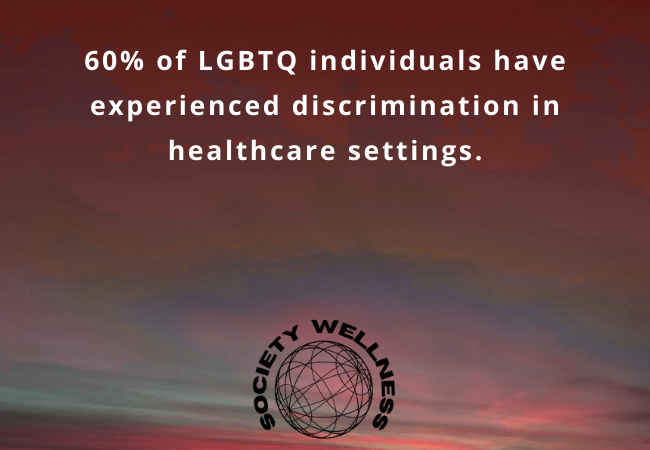Finding a therapist can feel like a leap of vulnerability—and for LGBTQ+ individuals, that leap is often met with hesitation, fear, or frustration. Many queer and trans people have faced invalidating experiences with therapists who lacked cultural competence, dismissed identity concerns, or held unconscious biases. The truth is, finding a queer-affirming therapist isn’t just helpful—it can be life-saving.
Whether you’re exploring gender identity, recovering from trauma, navigating relationship challenges, or simply seeking support to feel more grounded, finding a provider who sees, respects, and affirms your full identity is essential. At LGBTQ Behavioral Health Treatment Center Massachusetts, we’re here to guide you through every step of this journey—whether you’re seeking LGBTQ Therapy in Massachusetts, LGBTQ Queer Therapy in Massachusetts, or more intensive care like our LGBTQ PHP Treatment and Intensive Outpatient Program in Massachusetts.
In this in-depth guide, we’ll walk you through how to find the right LGBTQ+ therapist near you, what to look for, and why it matters more than ever.
Why It’s So Important to Find an LGBTQ-Affirming Therapist
1. Because Queer and Trans Mental Health Needs Are Unique
LGBTQ+ individuals face unique psychological burdens that stem from living in a society where heteronormativity and cisnormativity dominate the narrative. These include:
- Minority stress: Chronic anxiety from social stigma, microaggressions, and discrimination.
- Internalized shame or self-doubt from messages of “wrongness” absorbed over time.
- Gender dysphoria and lack of access to transition-related support.
- Family rejection, religious trauma, or societal isolation.
An affirming therapist understands that your identity is not the problem. They see your identity as a strength, not a symptom—and they integrate that understanding into every layer of care.
2. Because Traditional Therapy Can Cause Harm
Not all therapists are trained to work with LGBTQ clients, even if they claim to be “open-minded.” Common problems clients report include:
- Being misgendered or deadnamed
- Having identity-related topics avoided or invalidated
- Facing heteronormative assumptions about relationships
- Being told that identity struggles are “just anxiety”
- Therapists applying “one-size-fits-all” treatment models
Therapy should never make you feel smaller. If you feel like you have to filter your story to avoid discomfort—or worse, educate your therapist on basic identity terms—it’s time for a better fit.
3. Because Affirming Therapy Can Transform Lives
According to The Trevor Project:
- 45% of LGBTQ youth seriously considered suicide in the past year.
- 41% of transgender adults have attempted suicide at least once.
- LGBTQ individuals are more than twice as likely to experience a mental health condition.
Studies also show that affirming mental health care dramatically improves well-being by:
- Reducing depression, anxiety, and suicidal ideation
- Increasing self-acceptance and emotional regulation
- Supporting trauma recovery and personal growth
- Empowering individuals to live openly and authentically
How to Start Your Search: 8 Steps to Finding an LGBTQ+ Therapist Near You
1. Start With LGBTQ-Focused Directories
Use therapist databases that allow you to search specifically for LGBTQ-affirming providers. These platforms usually include bios, photos, and details about specialties.
Top directories include:
- Psychology Today – LGBTQ Therapists
- GLMA Provider Directory
- Inclusive Therapists
- TherapyDen
- National Queer and Trans Therapists of Color Network (NQTTCN)
Pro tip: Use filters to select by identity, specialty (e.g. trauma, gender identity), location, virtual/in-person care, and insurance.
2. Look for LGBTQ Mental Health Programs in Your Area
Instead of searching only for individual providers, consider looking into comprehensive LGBTQ-specific treatment centers like ours. At LGBTQ Behavioral Health, we offer:
- LGBTQ Queer Therapy in Massachusetts
- LGBTQ Mental Health Programs tailored to community-specific concerns
- LGBTQ PHP Treatment in Massachusetts (for more intensive, structured care)
- LGBTQ Intensive Outpatient Program (IOP)
- LGBTQ Couples and Marriage Counseling in Massachusetts
These programs ensure every element of care—intake, therapy, community support—is identity-affirming from the ground up.
3. Ask the Right Questions
Whether via phone, email, or first session, use your voice to advocate for your needs. Ask:
- “What experience do you have with LGBTQ clients?”
- “Do you use gender-inclusive forms and language?”
- “Are you trained in trauma or gender-affirming care?”
- “How do you support clients exploring identity or navigating transition?”
A skilled, affirming therapist will answer confidently, transparently, and respectfully.
4. Read Their Website and Profile Closely
Pay attention to language. Look for:
- LGBTQ+ identities and affirming language in their bio
- Mention of working with trans, nonbinary, or questioning clients
- Experience with LGBTQ trauma, family rejection, or relationship dynamics
- Personal identification as LGBTQ (if shared—it’s okay if not)
Watch out for red flags like vague descriptions or dated terminology (e.g., “alternative lifestyles”).
5. Get Referrals From Local LGBTQ Organizations
Your local LGBTQ community center, pride group, or support nonprofit may offer:
- Free mental health referrals
- Low-cost counseling resources
- Peer-recommended therapists
In Massachusetts, resources include:
- Fenway Health
- The Network/La Red (domestic violence support)
- BAGLY (The Boston Alliance of LGBTQ+ Youth)
- The Massachusetts Transgender Political Coalition (MTPC)
6. Consider Identity Compatibility
You may want a therapist who:
- Shares your cultural, racial, or gender identity
- Is part of the LGBTQ+ community
- Understands intersectionality (race, class, disability, immigration status, etc.)
At LGBTQ Behavioral Health, we strive to match clients with clinicians who align with their identity and values wherever possible.
7. Trust Your Gut After Session One
First impressions matter. After your first session, ask yourself:
- Did I feel seen and respected?
- Was my identity acknowledged without judgment?
- Could I speak freely without code-switching or censoring?
- Did I feel emotionally safe?
If the answer is no, it’s okay to try someone else. Therapy is about fit—you’re allowed to keep looking.
8. Choose In-Person or Virtual Therapy
Many LGBTQ clients now prefer virtual therapy, which offers privacy, flexibility, and access to affirming therapists beyond your zip code. Others benefit more from in-person sessions, especially when intensive treatment or community support is needed.
We offer both options through:
- Individual virtual sessions
- In-person programming at our LGBTQ Behavioral Health Treatment Center in Massachusetts

Types of LGBTQ Therapy Available Near You
At LGBTQ Behavioral Health, we offer a full continuum of care to support your unique mental health journey:
Individual Therapy
Explore:
- Identity development
- Anxiety, depression, or mood challenges
- Gender dysphoria or transition planning
- Relationship or family stress
- Trauma recovery
LGBTQ PHP Treatment in Massachusetts
A structured daytime program for individuals in crisis or experiencing intense mental health symptoms. Includes:
- Daily individual and group therapy
- Psychiatric support and medication management
- LGBTQ-focused curriculum and community care
LGBTQ Intensive Outpatient Program in Massachusetts (IOP)
For those needing more support than weekly therapy, but with flexibility. Includes:
- Multiple therapy sessions per week
- Identity-affirming support groups
- Skills-based and trauma-informed work
LGBTQ Couples and Marriage Counseling in Massachusetts
Affirming support for couples navigating:
- Communication issues
- Gender transition within the relationship
- Family building or parenting
- Open/polyamorous dynamics
LGBTQ Group Therapy
Group offerings on:
- Gender affirmation
- Coping with minority stress
- LGBTQ+ trauma recovery
- Emotional regulation and boundaries
Why Choose LGBTQ Behavioral Health?
We are more than inclusive—we are affirming, empowering, and LGBTQ-centered.
Why clients trust us:
- Clinicians with lived experience and deep cultural competence
- Customized programs built for LGBTQ-specific needs
- Private, judgment-free environment
- Insurance-accepted and flexible payment options
- True partnership on your path to healing
Whether you’re taking your first step or returning to therapy with new goals, we’re here to support you—all of you.
Conclusion
Finding the right therapist as an LGBTQ person shouldn’t feel like an impossible task. You deserve care that affirms your truth, validates your experience, and honors your story.
At LGBTQ Behavioral Health Treatment Center Massachusetts, we offer more than therapy—we offer a space to heal, grow, and be yourself without compromise. Call us today at 888.964.8116 Let’s find your match—whether you’re looking for individual therapy, couples counseling, group support, or a structured program designed for LGBTQ mental health.
FAQ on LGBTQ+ Therapist
Why should I look for an LGBTQ-affirming therapist?
An affirming therapist understands LGBTQ identity as central to your well-being and offers culturally competent, safe, and empowering care without judgment.
How do I know if a therapist is LGBTQ-affirming?
Look for inclusive language, training in LGBTQ issues, experience with queer clients, and respect for your pronouns, name, and lived experiences.
Where can I find LGBTQ+ therapists near me?
Use directories like Psychology Today, Inclusive Therapists, or contact LGBTQ Behavioral Health Treatment Center Massachusetts for affirming care.
What types of LGBTQ therapy are available?
Options include individual therapy, couples counseling, group therapy, and structured programs like LGBTQ PHP and IOP treatment in Massachusetts.
What questions should I ask a potential therapist?
Ask about their experience with LGBTQ clients, familiarity with gender-affirming care, and how they handle identity-related trauma or transitions.
Does LGBTQ Behavioral Health offer virtual therapy?
Yes. We offer both in-person and virtual therapy options to ensure you can access affirming care no matter where you are in Massachusetts.
Can I request a queer or trans therapist?
Absolutely. We do our best to match you with a clinician who aligns with your identity and therapeutic goals.
Is couples counseling available for LGBTQ relationships?
Yes. We offer LGBTQ Couples and Marriage Counseling in Massachusetts, affirming all relationship structures, transitions, and communication goals.

